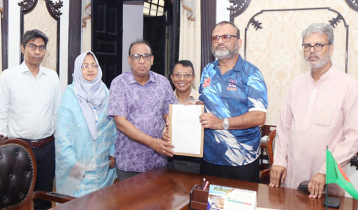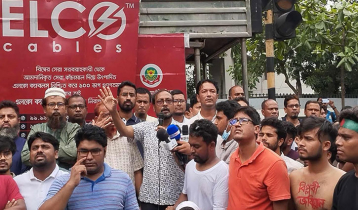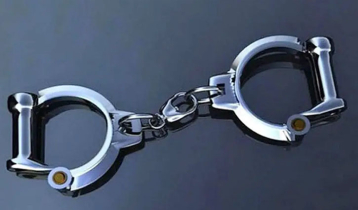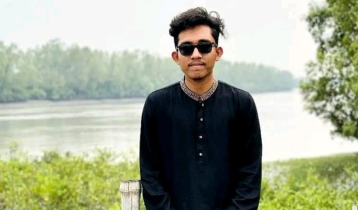How colonial rules shape Bangladesh
Tamanna Islam || risingbd.com

Tamanna Islam
The concept of colonialism is linked to imperialism. Colonial rule refers to the establishment of the rule of an empire in a particular region or territory. Colonial rule reduces the dominance of the local population in a territory and leads to economic exploitation. Bangladesh is a small country in South Asia. Bangladesh has a long history of colonial rule.
In ancient times Bangladesh was known as Banga Janapad and was ruled by Maury’s, Guptas, Pala’s and Mughals. After the death of Mughal Emperor Alamgir, the British started trading in exchange for taxes from Subedar Shaista Khan. In the battle of Palashi in 1757, Siraj-ud-Daulah, the Nawab of Bengal, fell to Robert Clive and British rule was established in Bengal.
In 1947, two countries, Pakistan and India, were formed on the basis of religion to liberate themselves from British rule. Today’s Bangladesh was part of East Pakistan and was economically, educationally, politically and socially discriminated against from West Pakistan.
Inspired by nationalism, today’s Bangladesh is known as an independent country through the bloody war of 1971. The British left the subcontinent 74 years ago but the effects of their colonial rule now exist in various sectors of present day Bangladesh. These are explained below.
Constitution
The National Parliament was formed in 1970 with elected members of the Provincial and National Assemblies of Pakistan to govern the country after the War of Liberation and a constitution was formulated within 9 months. The constitution included multi-party system of government, guarantee of fundamental rights, parliamentary system of government and independence of the judiciary and the four principles of the constitution were democracy, socialism, secularism and nationalism. Military rule began in 1975 and lasted for 15 years. The influence of the British colonial legacy can still be seen in the system of government in Bangladesh. The idea of a parliamentary system of government came from the British.
Political system
During the British rule, the Bengal was a hotspot of politics and there were many movements for liberation from colonial rule. The partition of India and Pakistan on the basis of religion in 1947-1957 led to the emergence of a large number of political parties.
The rise of nationalism
Nationalism arose in Bengal with the aim of liberating it from the long colonial rule. The establishment of the Indian Congress in 1855, the establishment of Bengal and Muslim League in 1905, and the establishment of the Awami League in 1949 have played a role in the development of nationalism.
India-Pakistan was formed in 1947 as a result of the development of nationalism. Nationalism played a big role in the formation of today’s Bangladesh. In 1971, as a manifestation of nationalism, it snatched victory through the war of liberation and created a state on the world map called ‘Bangladesh’.
Planning urbanizations
The British developed many places in Bangladesh. They built areas like Shahbagh, Motijheel, Fuller Road, Old Dhaka, post bungalows of different districts, historical establishments and various infrastructures which still carry their memory in Bangladesh. In addition, the construction of the Harding Bridge has resulted in an increase in population migration. The architectural style in which the British played a role is still standing in the present time.
Health
The British were very skilled in science and technology. During the colonial rule they brought a lot of development in the health sector of Bengal areas. Dhaka Medical College Hospital was built by them and is currently playing a role in the health sector of Bangladesh. Every year thousands of students are studying in this institution and are engaged in their own healthcare as doctors.
Industrialization
Attracted by the natural resources of Bengal, the British established a colony here. Bengal was famous for sugar, jute, silk and cottage industries. So the British established the first sugar mill in 1936 at Chuadanga in Darshana called "Keru & Company" and in 1933 at Gopalpur in Natore "North Bengal Sugar Mill". Adamji set up a jute mill at Narayanganj in 1956 to promote jute and jute products. Bengal silk was spread in Rajshahi for export to England and the textile industry was expanded. In addition to the expansion of the tea industry to create tea gardens, tea industry establishments, equipment, etc. left to the British for export, which is still playing a role in the industrial sector of Bangladesh.
Economy
The British brought economic development to these areas. The silk and cottage industries of Bengal were world famous. Bengal has been exporting goods to England since the British period and today our Bangladeshi garment industry is occupying the European and American markets.
Jute and coal industries flourished in Bengal, construction of Mongla seaport and Chattogram seaport, ship breaking industry in Chattogram spread through the British. The economic expansion of Bengal through the expansion of commercial cultivation of jute, sugar, silk, tea, maize, salt, etc., created a loyal zamindar (land lords) class through the collection of taxes and held the title of Chowdhury, Majumdar which still exists in the society of Bangladesh. Railways, telegraphs, etc. built by Lord Dalhousie are helping in the economic development of Bangladesh.
The formation of police
The police force was formed by the Indian Act of 1857. The police force conducted the operation to investigate the crimes of the British East India Company. The influence of the British can still be seen in the Bangladesh police force. Police Act 181, Bangladesh Penal Code 180, Code of Criminal Procedure 1898 and Evidence Act 1872 are still in use in the police force. Police customs and traditions are based on colonial laws. The Bangladesh Police Training Academy was established in 1912 at Sarada in Rajshahi and is still operating in the colonial tradition. Police uniforms, badges, color of clothing, horse training, etc. are imitated by the Scots.
The lower constables, the middle inspector and the higher Superintendents are the titles given by the British which are still used in the rank of Bangladesh Police. Bangladesh Police Force is playing a role in maintaining law and order and security of the people.
Military
The British East India Company established the Bengal Army in 1857 with Europeans and locals. During the Pakistan period, this force took the name "East Bengal Regiment" and played an important role in the liberation war of Bangladesh by providing training to the freedom fighters. Bangladesh has gained a military reputation for restoring parliamentary democracy through a military coup in 1991, participating in the Persian Gulf War in 1991, and working for peace in Africa, the Middle East, the Balkans, and the Caribbean. The Bangladesh Military is carrying out its activities in the UN peacekeeping mission while maintaining the reputation of Bangladesh.
Bureaucracy
At present democratic states depend on bureaucrats. Bureaucracy is an essential part of governance. The education, recruitment, training, workplace, working methods of bureaucrats are different from the common people. As a result of colonial rule, bureaucrats exercised immense power. Corruption, nepotism, red tape and violence are very high in the bureaucracy of Bangladesh so the people have to suffer. As a result, administrative accountability is not ensured.
Law and order
After Bangladesh became an independent country, the legal system obtained from the British Empire of Pakistan and India was effective. According to the colonial legislation, laws are made in a power-driven, command-based and top-down process. Information Technology Act, Communication Technology, Cyber Technology Defamation Crime, Rape Act 170, Discrimination and Gender Equality Act are British influenced laws which are still in force in Bangladesh.
As a result, there are very few opportunities for the people to participate in the debates of the legislature and the chances of the people getting justice are very low. That is why crime is increasing in Bangladesh at present.
Education
The British contributed to the spread of education in Bengal. Expansion of English language education and various educational institutions such as BUET (although it was established in 1971 but was earlier established as Dhaka Survey School, 18), University of Dhaka (1921), Dhaka College (1841), Ananda Mohan College of Mymensingh (1908), Carmichael College of Rangpur (1908) and Eden Women’s College.
At present, meritorious students are benefiting by studying in these educational institutions and are contributing to the formation of the country. The "British Council" built by the British and the "British Council Library" at Fuller Road are helping to achieve English education and higher education abroad. Colonial influences still exist in the process of passing the IELTS, GRE exams for higher education abroad.
The BCS examination of Bangladesh Civil Service has been conducted since the time of British rule which is now helping to form the bureaucracy and is playing a role in running the government in the political arena of the country.
Dhaka University has played a role in the development of Bengali nationalism. The language movement of 1952, the 6-point movement of 1966, the student movement, the anti-authoritarian movement, the liberation war of 1971 also had a leading role in the formation of today's Bangladesh.
Religious hatred
Hindu-Muslim riots and attacks on minorities have been going on since the creation of India and Pakistan on the basis of religion in 1947. The religious hatred created by the British is still an obstacle to communal harmony in Bangladesh.
Social reforms
The British have played a significant role in social change in the Indian subcontinent. Ishwar Chandra Bidya Sagor, Raja Rammohon Roy, Nawab Abdul Latif, Begum Rokeya, Syed Amir Ali and Sayed Ahmed have played a leading role in spreading education and social change. Eliminates Social Superstition and Religious Orthodoxy by Introducing Child Marriage, Abolition of Satidah, Widow Marriage.
Cultural affairs
Some of the cultural legacy of the British can be seen in Bangladesh even today. For example, driving on the left side of the road, the predominance of the left lane in the construction of roads and flyovers. Also the door lock of the house is locked from behind, the water tap is rotated from left to right etc. obtained from the British.
In the courts of Bangladesh, the British have influence over the dress of judges, rules and regulations, lawyers, attorneys, etc. Bengal entered the Middle Ages during the British rule. The modern dress that Bengalis wear today started with the wearing of British shirts, pants and courts in the Middle Ages.
If a country manages its country in its most important issues and basic sectors without developing its own identity, history-tradition and thinking, then how will the vow of nationalism, individualism, nation building come to the country. The development of a nation, values, ethics, talent, high mentality, intellectual care is not possible with the things borrowed and borrowed from the present Shape British in Bangladesh. So Bangladesh is still lagging behind other countries in many respects.
Tamanna Islam studies International Relations at the University of Dhaka
DU/Mahfuz























